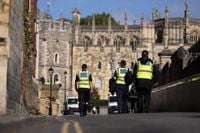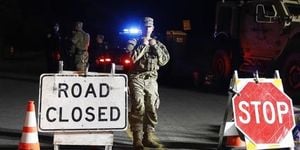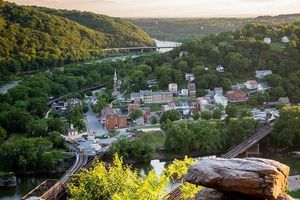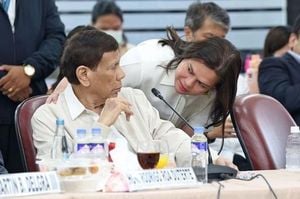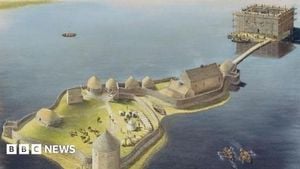As the United Kingdom rolled out its most elaborate security operation in recent memory, the arrival of U.S. President Donald Trump for his second state visit was overshadowed by the arrest of two men accused of flying drones near Windsor Castle. The incident, which unfolded on September 16, 2025, just as Trump touched down on British soil, underscored both the heightened tensions and the extraordinary measures in place to safeguard the high-profile diplomatic event.
According to Thames Valley Police, a 37-year-old man from Brentford, London, was apprehended at Windsor Great Park after officers spotted an unmanned aerial vehicle hovering above the grounds—an area known affectionately as the castle’s back garden. As reported by The Standard, the man was arrested “for flying a drone that breached an airspace restriction order,” and remains in police custody as the investigation continues under aviation legislation. A second man was also arrested for a similar offense, bringing the total to two individuals detained for drone activity in the restricted area, as confirmed by the Associated Press.
The timing of these arrests was no coincidence. Between September 16 and 18, a temporary airspace restriction was in effect over Windsor and its environs, covering all aircraft—including drones—due to President Trump’s visit. The restrictions, which also extended over Chequers, the Prime Minister’s official country residence in Buckinghamshire, were part of what police described as a “ring of steel” surrounding the American leader’s itinerary. “This serves as a reminder that airspace restrictions are currently in place for the state visit of President of the United States of America Donald Trump, and any breaches will be dealt with robustly,” a Thames Valley Police spokesperson stated, as cited by The Standard.
Security was nothing short of formidable. Armed officers patrolled the streets, police drones and the National Police Air Service monitored the skies, and the River Thames itself was under close watch. Inspector Matthew Wilkinson of the force’s Joint Operations Unit explained, “We have a significant security operation in place in and around Windsor for the visit of President Trump, and this now includes additional airspace restrictions over Chequers. These restrictions are a standard part of our planning for high-profile visits and are designed to protect everyone involved, including members of the public.”
Wilkinson went on to urge vigilance among locals and visitors alike: “We will have resources available and tactics deployed to enforce these restrictions and deal with anybody who fails to adhere to them. If you notice anything suspicious in the air or on the ground, please report this to police. You can speak to an officer, make a report online, via our website or call 101. If something is taking place now, always call 999.”
The backdrop to these security concerns was the arrival of President Trump, aged 79, who landed at Stansted Airport in Essex on the evening of September 16, 2025. The visit was described by The Standard as “unprecedented”—marking Trump’s second state visit to the UK, a rarity for any U.S. president. His trip was announced shortly after his return to the White House, and it was billed as both a diplomatic charm offensive and a political balancing act for Prime Minister Keir Starmer’s newly established government.
The President’s itinerary was packed with pageantry and political substance. Upon arrival, Trump was welcomed at Windsor Castle by King Charles III, Queen Camilla, Prince William, and Princess Kate. A military flypast was planned, along with a full state banquet and the solemn laying of a wreath on Queen Elizabeth II’s tomb. Trump’s wife, Melania, accompanied him on the trip, adding to the sense of occasion and international attention.
Yet, the visit was not all ceremony. Trump was scheduled to sit down for political talks with Prime Minister Starmer, with the British government keen to avoid the fallout from Trump’s signature tariff policies—a point emphasized by The Standard. The meeting at Chequers, Starmer’s official residence, was a focal point for both security and diplomacy, prompting the extension of airspace restrictions to that location as well.
The security operation was comprehensive, and for good reason. The state visit came just a week after the fatal shooting of Trump’s key ally, Charlie Kirk, at a Utah university—an event that had already put security services on high alert. The British authorities were determined to prevent any disruptions or threats during the high-stakes visit. As AP reported, police officers could be seen patrolling outside Windsor Castle as early as September 15, 2025, in anticipation of the President’s arrival.
For locals and tourists in Windsor, the heightened security was palpable. Barricades and police presence transformed the usually tranquil setting of Windsor Great Park and the castle’s surroundings into a fortress. The restrictions did not go unnoticed by drone enthusiasts and hobbyists, who were warned repeatedly about the temporary bans. Thames Valley Police reiterated, “Between 16 and 18 September, a temporary airspace restriction is in effect over and around Windsor, covering all aircraft, including drones.” According to The Standard, similar bans were enforced at Chequers, with police drones and air support units deployed to monitor compliance.
The incident involving the drones was swiftly addressed by authorities, but it served as a stark reminder of the challenges posed by new technology in the realm of security. Drones, once a novelty, have become a persistent concern for law enforcement during major events. As the investigation into the two men’s actions continues, police have emphasized that breaches of airspace restrictions will be “dealt with robustly.”
Despite the security hiccup, the state visit proceeded as planned. The lavish banquet at Windsor Castle, hosted by King Charles III, went ahead on September 17, 2025, as did the other ceremonial events. For the British government, the successful management of the visit and its associated risks was seen as a crucial test of both diplomatic finesse and operational capability.
As the world watched, the United Kingdom demonstrated its ability to balance tradition, diplomacy, and security in the face of modern challenges. The arrests near Windsor Castle may have grabbed headlines, but they also highlighted the meticulous planning and rapid response that underpin such historic occasions.
In the end, while drones briefly threatened to disrupt the spectacle, the real story was one of vigilance, cooperation, and the enduring significance of statecraft in a changing world.
